News
-
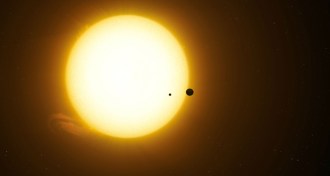 Astronomy
AstronomyHubble may have spotted the first known exomoon
A single sighting with the Hubble Space Telescope seems to confirm that there’s a Neptune-sized moon orbiting exoplanet Kepler 1625b.
-
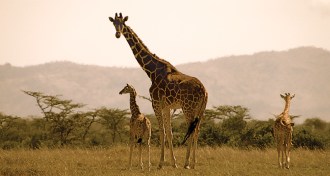 Animals
AnimalsGiraffes inherit their spots from their mothers
Africa’s tallest creatures get their characteristic patterns of spots from their moms, a new study finds.
-
 Physics
PhysicsDazzling laser feats earn these physicists a Nobel
The 2018 Nobel Prize in physics went to scientists — including the third-ever female winner — who made optical tweezers and boosted the strength of laser pulses.
-
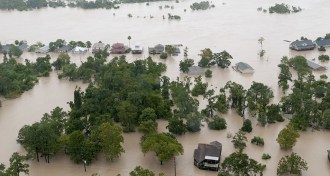 Climate
ClimateTracking how rainfall morphs Earth’s surface could help forecast flooding
After Hurricane Harvey, scientists used GPS networks to track how Earth’s surface morphed under the weight of floodwaters.
-
 Health & Medicine
Health & MedicineDiscovery of how to prod a patient’s immune system to fight cancer wins a Nobel
Two scientists share the 2018 medicine Nobel for identifying proteins that act as brakes on tumor-fighting T cells.
By Tina Hesman Saey and Aimee Cunningham -
 Plants
PlantsGene editing can speed up plant domestication
CRISPR/Cas9 replays domestication to make better ground cherries and tomatoes.
-
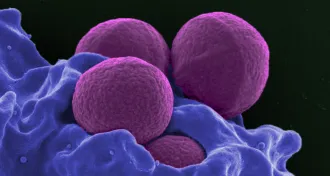 Genetics
GeneticsSmuggling a CRISPR gene editor into staph bacteria can kill the pathogen
A new way fight antibiotic-resistant bacteria co-opts toxin-producing genes.
-
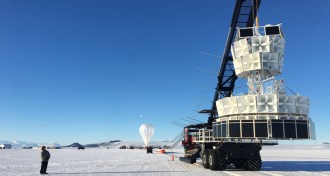 Particle Physics
Particle PhysicsHints of weird particles from space may defy physicists’ standard model
Signals from the ANITA experiment don’t square with the properties of elementary particles cataloged in the standard model.
-
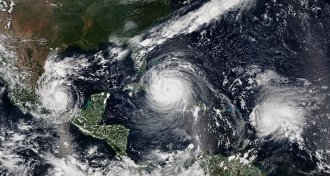 Climate
ClimateWarm tropical Atlantic waters juiced the 2017 hurricane season
Anomalously warm ocean waters in the tropical Atlantic Ocean drove 2017’s hurricane powerhouses.
-
 Animals
AnimalsFeral cats appear to be pathetic at controlling New York City’s rats
When cats are on the prowl, rats may become harder to see, but roaming cats actually killed only a few.
By Susan Milius -
 Archaeology
ArchaeologyLaser mapping shows the surprising complexity of the Maya civilization
A large-scale lidar survey of Guatemalan forests reveals evidence of ancient, interconnected Maya cities.
By Bruce Bower -
 Neuroscience
NeuroscienceSurvey raises worries about how screen time affects kids’ brains
A large study of U.S. children ties lots of screen time to lower thinking skills, but the relationship between the two is still unclear.